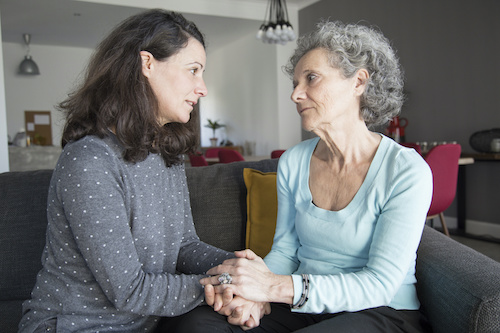Keeping a close eye on your senior loved one’s health is essential to identify problems in their earliest stages. The earlier you can get them help for various conditions, the more positive the outcome you can expect. Even if your loved one is using senior care services in OKC, it’s still critical to watch for signs of problems like seasonal affective disorder. The following will help you identify if your elderly family member is suffering from this condition.
Irritability or Anxiety
Sometimes seniors show signs of irritability or anxiety at the simple mention of assisted living options because they prefer to age in place. However, if they are generally happy and carefree at other times of the year, but exhibit these signs more often as the days get shorter, it could be a sign of seasonal affective disorder instead. Keep a close eye on your loved ones overall moods and take note of noticeable changes, along with the circumstances surrounding those fluctuations. This can help you more easily identify the cause and determine if the changing seasons are to blame.
Social Isolation
Seniors suffering from seasonal affective disorder tend to withdraw socially during the winter months. If your senior loved one is typically more social at other times of the year but withdraws during the colder, darker months, it could indicate a problem assisted living care in Oklahoma City can address. While some seniors may blame the weather for their isolation, talking to their medical care team can help you rule out seasonal affective disorder or get them the help they need to resume their more active social life.
Check Your Family History

Anyone can develop seasonal affective disorder, but if you have a family history of this condition, the chances your senior loved one can be affected rises. Understanding your family history will help you keep a closer eye on specific conditions, including SAD, ensuring you can get your loved one the help they need to overcome it. Senior care services in OKC understand the impact of family history and can assist you in keeping an eye on your loved one throughout the winter months.
Changes in Sleep Patterns
Just like traditional depression, individuals impacted by seasonal affective disorder will typically exhibit a change in sleep patterns, such as oversleeping, not sleeping enough, or feeling general fatigue, even after a full night of sleep. It can be challenging to notice a change in your loved one’s sleeping pattern, particularly if they live in assisted living, but it never hurts to ask your family member about how well they’re sleeping. You can also ask the staff at the assisted living center to watch your loved one and let you know if they show any signs of a poor sleep schedule.
If you’re concerned about whether your senior loved one is suffering from seasonal affective disorder while in our care, contact us. We’ll be more than happy to discuss this disorder with you and help you identify if you should seek help for your loved one.


Leave a Reply